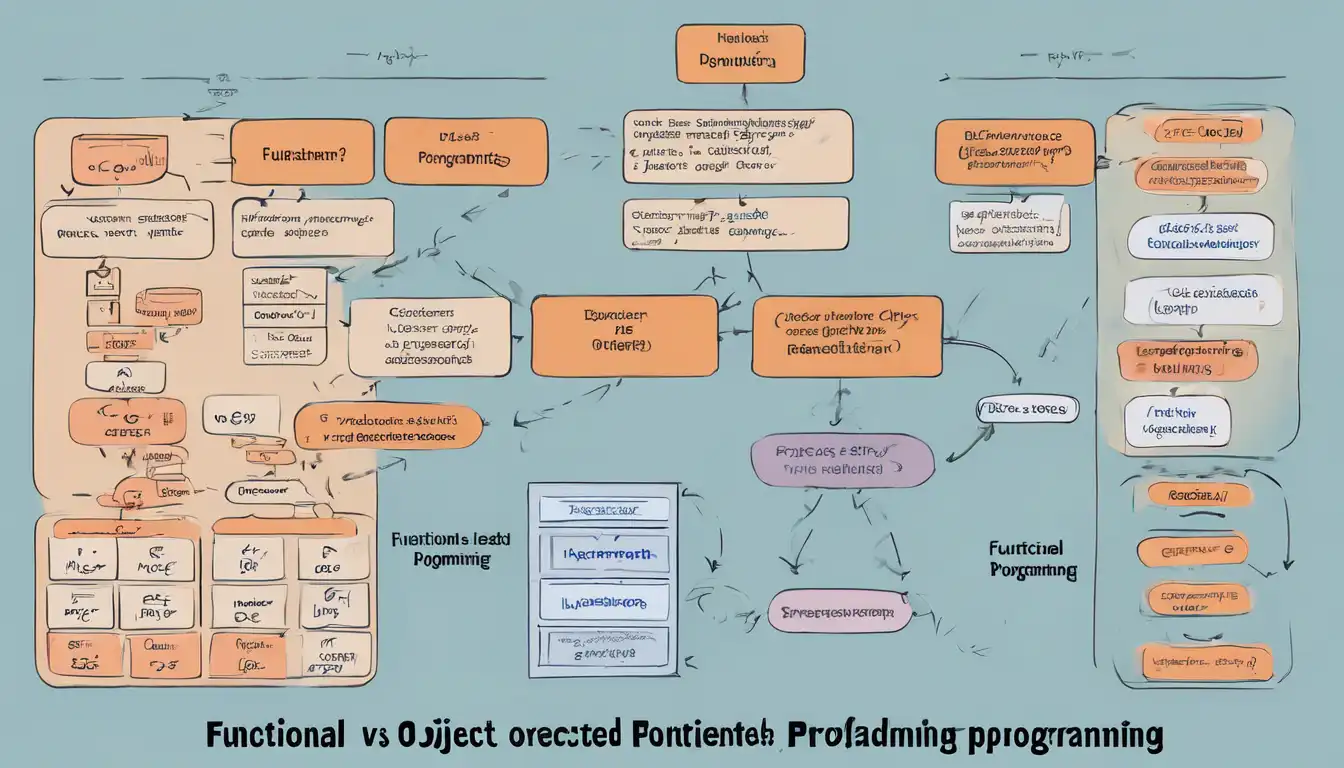Introduction to Programming Paradigms
In the world of software development, understanding the differences between functional programming (FP) and object-oriented programming (OOP) is crucial for choosing the right approach for your project. Both paradigms offer unique advantages and challenges, making them suitable for different types of applications.
What is Functional Programming?
Functional programming is a paradigm that treats computation as the evaluation of mathematical functions and avoids changing-state and mutable data. It emphasizes the application of functions, in contrast to the imperative programming style, which emphasizes changes in state.
- Immutable Data: In FP, data is immutable, meaning it cannot be changed after it's created.
- First-Class Functions: Functions are treated as first-class citizens, allowing them to be passed as arguments to other functions.
- Pure Functions: Functions in FP are pure, meaning they always produce the same output for the same input and have no side effects.
What is Object-Oriented Programming?
Object-oriented programming is a paradigm based on the concept of "objects", which can contain data and code: data in the form of fields, and code, in the form of procedures. OOP focuses on the objects that developers want to manipulate rather than the logic required to manipulate them.
- Encapsulation: OOP bundles the data and the methods that operate on the data into a single unit.
- Inheritance: This allows a class to inherit properties and methods from another class.
- Polymorphism: It enables one interface to be used for a general class of actions.
Comparing Functional and Object-Oriented Programming
When deciding between FP and OOP, consider the nature of your project. FP is often better for data manipulation tasks, while OOP is ideal for modeling real-world objects and scenarios.
Advantages of Functional Programming
FP offers several benefits, including easier debugging due to pure functions, and better support for concurrent programming since immutable data eliminates the risk of data races.
Advantages of Object-Oriented Programming
OOP provides a clear modular structure for programs, making it easier to maintain and modify existing code. It also promotes code reusability through inheritance.
Conclusion
Both functional and object-oriented programming have their place in software development. The choice between them depends on the specific requirements of your project. By understanding the strengths and weaknesses of each paradigm, you can make an informed decision that best suits your needs.
For more insights into programming paradigms, check out our articles on software development and programming best practices.
